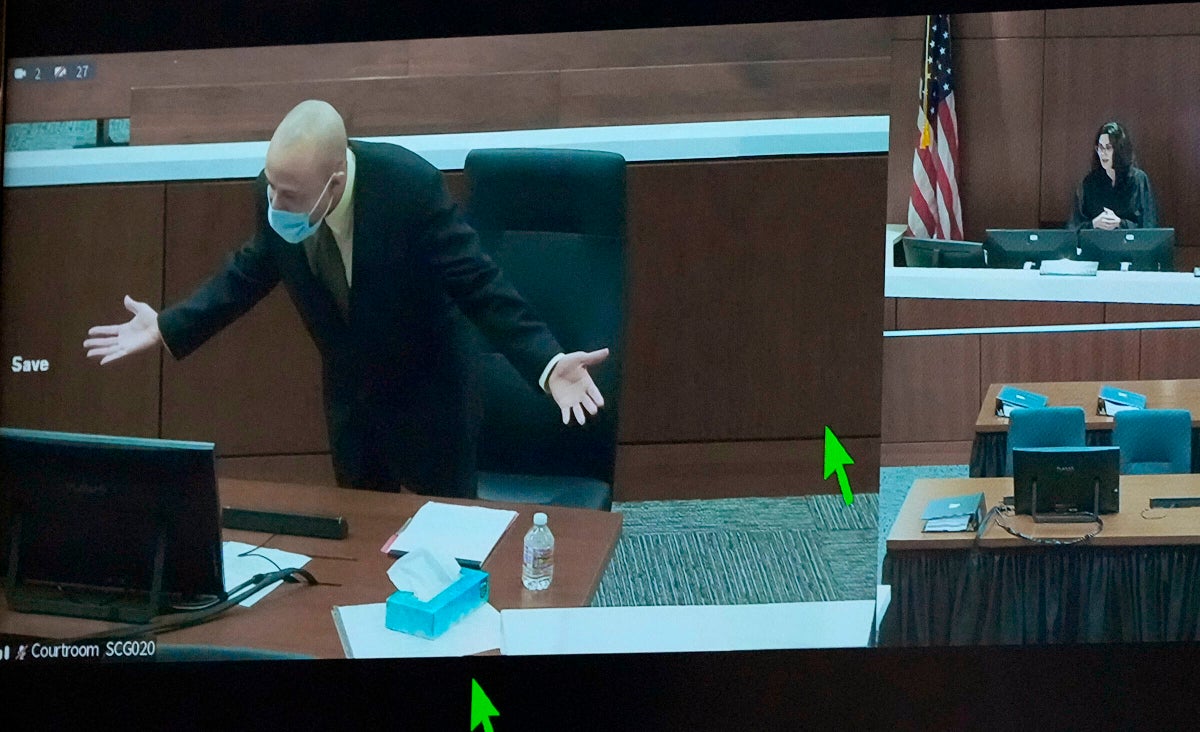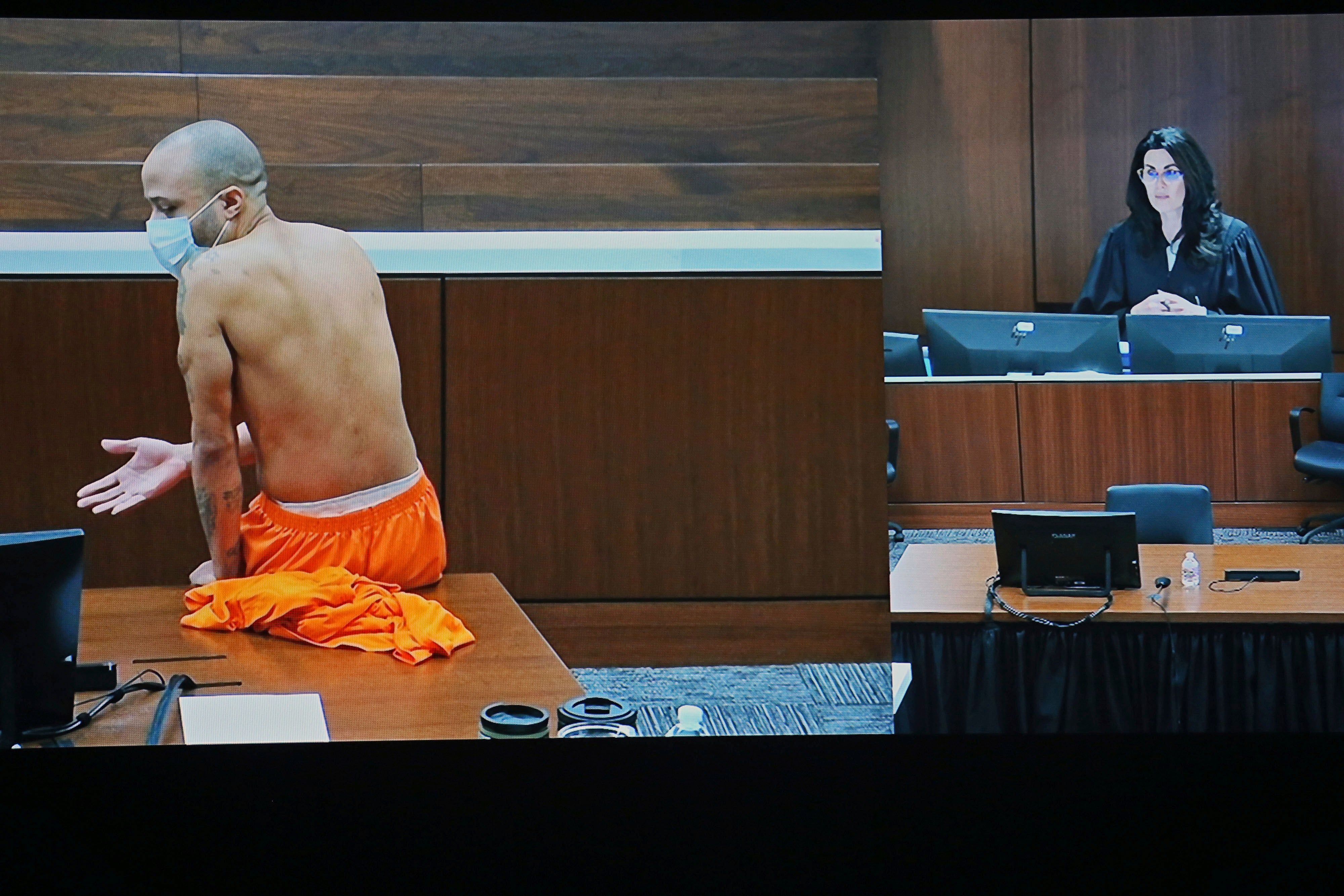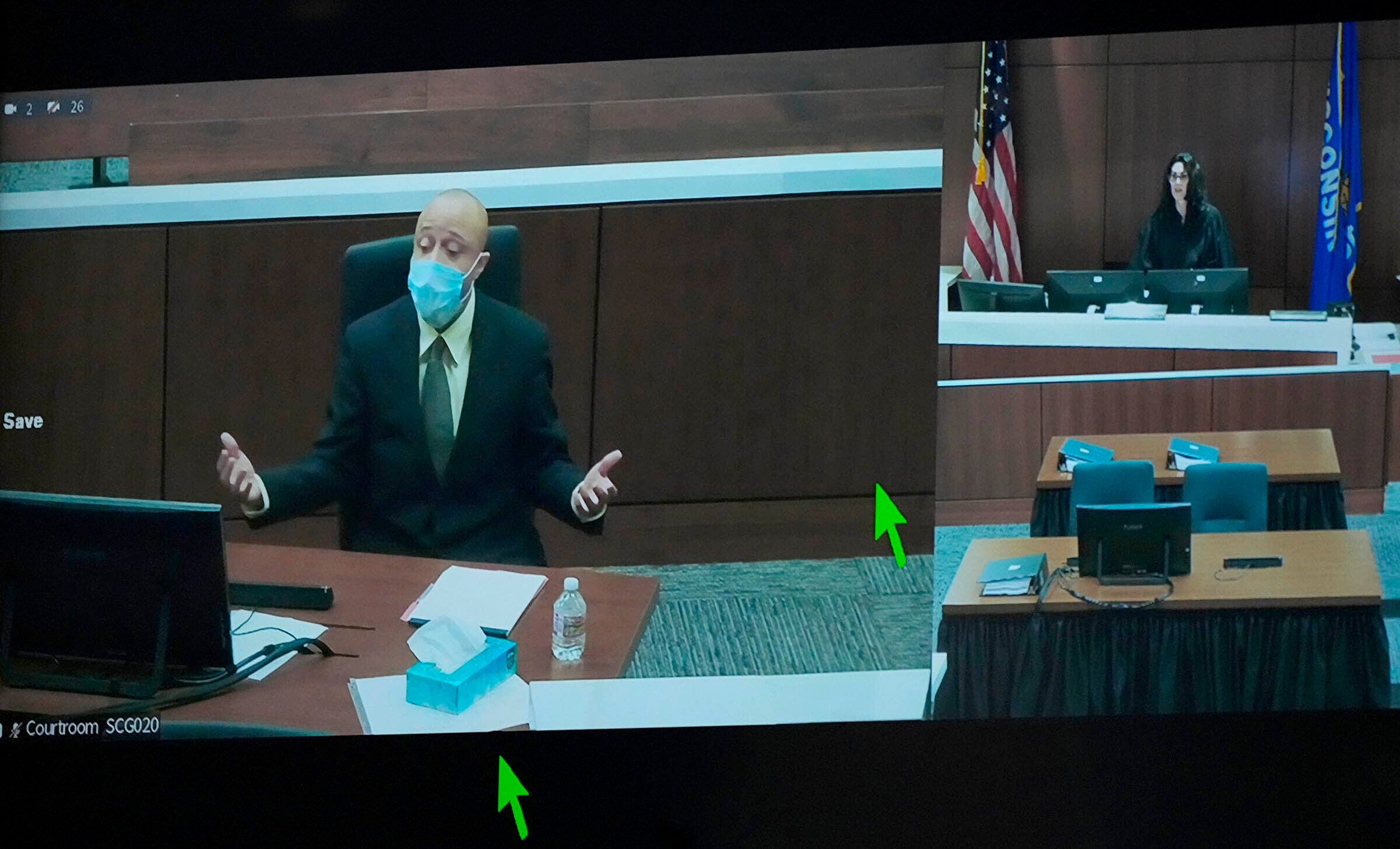
Darrell Brooks, the accused Waukesha Parade killer, cross-examined victims of the event in court on Tuesday.
It was announced last week that Brooks, who plowed through the city’s Christmas parade in his Ford Escape last year and killed six people, would be representing himself during the trial in Milwaukee, Wisconsin, despite having no legal training.
On Tuesday, Brooks interrupted the judge’s remarks and assumed an unclear line of questioning that often sought to downplay his victims’ testimonies.
After Joshua Kraner — a baseball coach who was at the parade with his children when the violence broke out — took the stand and recounted suffering contusions and bone bruises, Brooks attempted to dismiss the long-term effects of Mr Kraner’s injuries.
“Would it be fair to say you’re moving pretty good today?” Brooks inquired before asking “Would it be fair to say you’re walking pretty good these days?” and “Would it be fair to say you don’t remember much from the event?”
Judge Jennifer Dorow repeatedly sustained the prosecution’s objections to Brook’s questions and cut him off when he attempted to cast doubt on Mr Kraner’s recollection of events. Since the trial started on 3 October, Brooks has been removed several times from the court for his combative attitude and for stripping off.

“This witness did not identify you, he testified as of his observations regarding the day in question and his injuries ... so the news reports don’t have any bearing on his credibility. The points that you brought up are arguments that you may make if you choose during your closing arguments,” said Ms Dorow.
When Brooks argued that his questions were “objective” and he “didn’t even” have a chance to “get to the questions that need[ed] to be answered,” Ms Dorow said: “Sir, many of your questions get to these sovereign ideas that are frivolous arguments about the plaintiff.”
“I gave you a little bit of leeway, but to ask about [victims making compensation] claims ... you might be asking for a different purpose,” she continued.
Ms Dorow asked Brooks to stop arguing with her every time she overruled his objections and redirected Brooks to the statute book, telling him she “hoped” he wasn’t abusing the claim of hearsay “just to interpose an objection.”
“Ignorance of the law is not something you can use as a valid defence. You did this of your own free will, you waived your right to an attorney and the ignorance that you claim is not valid at this point,” Ms Dorow stated.
Meanwhile, Alyssa Gajewski, a dance coach who was at the parade with the group of girls she taught, broke down in tears as she watched footage of the SUV hitting her dancers, between ages six and eight.

As Ms Gajewski became increasingly emotional, Brooks began to make comments under his breath, prompting the prosecution to ask Judge Dorow to interfere.
Ms Gajewski also recalled how she picked up one of the girls from the middle of the street as she began to process the imminent threat, while another started seizing and vomiting.
She later visited a student at Waukesha Memorial Hospital and recounted “holding her hand and trying to squeeze her hand but she was going in and out of consciousness.”
Kelly Grabow and Jeffrey Rogers also took the stand in court and were cross-examined by Brooks. Ms Grabow and her daughter, and three of Mr Roger’s children were injured in the parade.
Brooks has already shown to be disruptive and combative. Legal experts previously observed that the proceeding would be painful for the victims.
“It’s really going to be a challenging trial for the witnesses,” said Tom Grieve, a criminal defence attorney based in Madison. “You have a defendant who feels like he has nothing to lose. He’s going to try to make as big a mess as possible and force a fumble by the prosecutors or judge and try to force a mistrial or build an appeal.”







